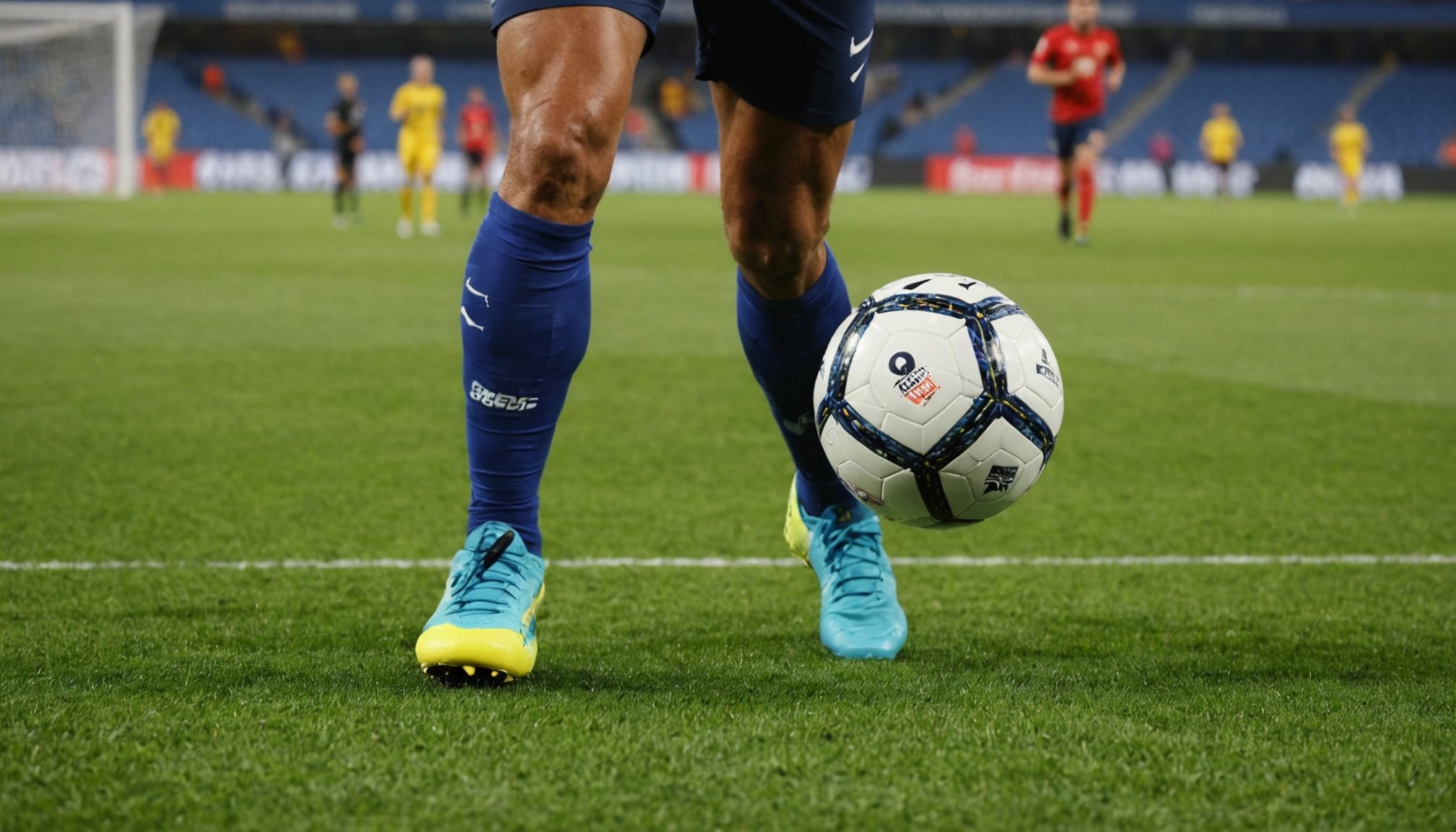Exploring the Ethical Implications of Performance-Enhancing Supplements in Football: A Deep Dive
The Allure of Performance-Enhancing Supplements in Sports
Performance-enhancing supplements have become a contentious issue in the world of sports, particularly in football. The drive to excel and the pressure to perform at the highest level often lead athletes to consider using these substances to gain a competitive edge. However, the use of these supplements raises significant ethical concerns that impact not only the athletes themselves but also the integrity of the sport.
The Appeal of Enhancing Drugs
Athletes are often drawn to performance-enhancing drugs (PEDs) because they promise rapid improvements in strength, power, and endurance. For example, anabolic steroids can significantly increase muscle mass and strength, making them particularly appealing to football players who need to be physically dominant on the field. Similarly, growth hormone and other substances can enhance recovery and reduce fatigue, allowing athletes to train harder and longer.
Also to read : Identifying Overtraining Symptoms in Pro Football Players: Strategies for Prevention and Recovery
- Anabolic steroids: Increase muscle mass and strength
- Growth hormone: Enhance recovery and reduce fatigue
- Beta blockers: Reduce anxiety and improve focus in high-pressure situations
- Stimulants: Increase alertness and energy
However, the use of these substances comes with severe health risks. Anabolic steroids, for instance, can lead to liver damage, cardiovascular problems, and mental health issues such as depression and aggression.
Health Risks Associated with PEDs
The health risks associated with the use of PEDs are a major ethical concern. These substances can have long-term and sometimes irreversible effects on the athlete’s body.
In parallel : Effective Fundraising Tactics to Boost Amateur Football Clubs in the UK
Physical Health Risks
- Liver Damage: Anabolic steroids can cause significant liver damage, including the formation of cysts and tumors.
- Cardiovascular Issues: The use of steroids and growth hormone can lead to increased blood pressure, heart failure, and stroke.
- Musculoskeletal Problems: Overuse and abuse of PEDs can result in tendon ruptures, muscle tears, and other musculoskeletal injuries.
Mental Health Risks
- Depression and Anxiety: The use of PEDs has been linked to increased rates of depression, anxiety, and other mental health disorders.
- Aggression and Mood Swings: Steroids, in particular, are known to cause mood swings and aggressive behavior.
- "The use of anabolic steroids can lead to severe mental health issues, including depression and anxiety. It's a risk that athletes should not take lightly," says Dr. Mario Thevis, a leading researcher in anti-doping science.
The Anti-Doping Effort: Protecting the Integrity of Sports
To combat the use of PEDs, anti-doping agencies around the world work tirelessly to ensure fair play in sports. The World Anti-Doping Agency (WADA) is at the forefront of this effort.
Advanced Testing Methods
Modern anti-doping tests are highly sophisticated, using techniques such as liquid chromatography-high resolution mass spectrometry (LC-HRMS) to detect even trace amounts of banned substances. For example, the “organ-on-a-chip” technology is being explored to mimic human metabolism and predict the metabolic profiles of prohibited substances, making it harder for athletes to cheat undetected.
Strict Liability and Consequences
The World Anti-Doping Code (WADC) operates under the principle of strict liability, meaning that athletes are responsible for any substance found in their body, regardless of how it got there. This has led to numerous high-profile cases where athletes have been banned from competition due to contamination from dietary supplements or other sources.
- "The strict liability rule is in place to protect the integrity of sports. However, it also highlights the need for athletes to be extremely cautious about what they consume," notes a spokesperson for the US Anti-Doping Agency (USADA).
The Impact on Young Athletes
Young athletes are particularly vulnerable to the allure of PEDs. The pressure to perform and the desire to secure scholarships or professional contracts can lead them to make decisions that have long-term consequences.
The Mitchell Report and Its Aftermath
The Mitchell Report, released in 2007, exposed widespread steroid use in Major League Baseball and highlighted the issue of PEDs in professional sports. This report and others like it have led to increased scrutiny and education programs aimed at young athletes.
- "Education is key. Young athletes need to understand the risks associated with PEDs and the importance of fair play," says Jeff Byers, CEO of Momentous and a former NFL player.
Practical Advice for Athletes and Coaches
For athletes and coaches looking to enhance performance without resorting to PEDs, there are several alternatives that focus on natural and sustainable methods.
Nutrition and Recovery
Proper nutrition and recovery strategies are crucial for athletic performance. A balanced diet that includes essential nutrients can help athletes recover faster and perform better. For example, creatine supplementation combined with resistance training has been shown to enhance muscle strength and endurance without the risks associated with PEDs.
| **Nutrient** | **Benefit** | **Recommended Intake** |
|
|-------------|
|
| Creatine | Muscle strength and endurance | 3-5 grams per day |
| Protein | Muscle repair and growth | 1.2-1.6 grams per kilogram of body weight |
| Carbohydrates| Energy supply | 2-3 grams per kilogram of body weight |
| Healthy Fats | Overall health and recovery | 0.5-1 gram per kilogram of body weight |
Training and Mental Preparation
Effective training programs and mental preparation techniques can also enhance athletic performance. Rucking, for instance, is a full-body workout that combines walking with weighted packs to build strength, endurance, and mental toughness.
- "Rucking is a great way to stay in shape while also improving mental toughness. It's something I incorporate into my daily routine," says Jeff Byers.
The use of performance-enhancing supplements in football is a complex issue with significant ethical implications. While the allure of these substances is strong, the health risks and the impact on the integrity of sports cannot be ignored. Athletes, coaches, and fans must make informed decisions and support anti-doping efforts to ensure that sports remain a fair and healthy pursuit.
- "The integrity of sports is at stake. We must work together to ensure that athletes compete fairly and safely," emphasizes Dr. Mario Thevis.
By focusing on natural methods of performance enhancement, such as proper nutrition, recovery strategies, and effective training programs, athletes can achieve their goals without compromising their health or the integrity of the game.











